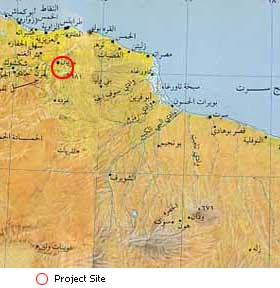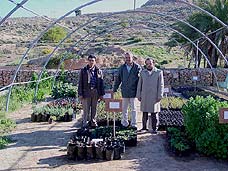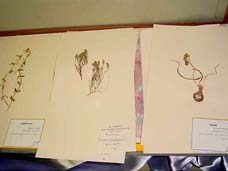|
Libya :
In Libya, people rely primarily on medicinal plants for treating health problems, especially in rural areas. Because people care about them, medicinal plants are an excellent entry point for biodiversity conservation in general.
The project area in Libya is the Western Mountain, a mountainous area extending from the Tunisian border in the west about 100 km south of the Mediterranean sea coast to the Al-Khoms area on the sea coast at the east. Medicinal plants are important biodiversity resources and many of them are rare and under threat of heavy utilization and need much attention. Many of the ecosystems and habitats that are supporting these valuable resources in the area are threatened by misuse, overgrazing and erosion. The pilot site of the programme is the Abu-Ghailan National Park.

The programme is implemented in Libya by the government (Environment General Authority), in close collaboration with the University of Al-Faateh, and the Department of Agriculture. The National Coordinator was Dr Omar Mohammad Sudani.
The programme aims to conserve ecotypes from the area and preserve the genetic makeup of the plants in the park. Green house frames have been erected in the Abu-Ghailan National Park, as well as the Tubbi area, where experiments are carried out growing medicinal and ecologically important plants from seeds or cuttings from the wild, and transplanting them back to natural settings. University and graduate students are also conducting laboratory seed germination and transplanting experiments. The great majority of both endangered and ecologically important plants in Libya have medicinal properties, and for that, the scientific work the project initiated, and which has provided ample knowledge on methods to germinate, propagate, transplant, and cultivate these species, is of major added-value to efforts exerted for the restoration of Libya's degraded ecosystems.

One of the goals of the programme is to raise awareness around the Abu-Ghailan National Park site. An environmental education programme has been set up and an education workshop has taken place. Raising awareness on medicinal plants has had an impact locally in promoting a broader interest in conservation.
Field data is being collected on endangered plants, with the identification of endangered plant species and the assessment of threats and practices degrading the ecosystems and endangering the species. Herbarium specimens have been prepared.

Traditional knowledge is being gathered from local people, especially from women, and from literature on usage and conservation of plants.
|


